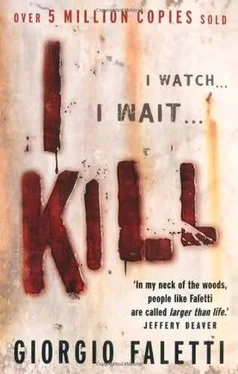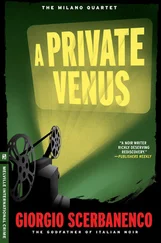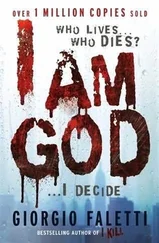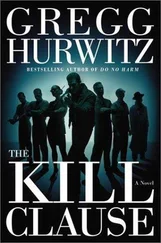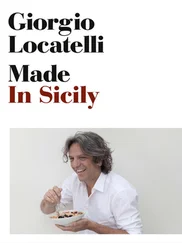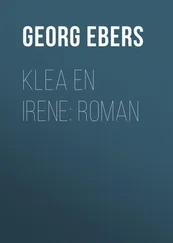The man starts nervously but it is not noticeable in his voice. He turns to the open door in the shadows to his left.
‘I wasn’t out having fun, Paso. I was doing it for you.’
The tone is one of slight reproach, and it quickly provokes a remorseful answer.
I know, Vibo, I know. I’m sorry. It’s just that time never passes when you’re away.
The man feels a wave of tenderness and his slight anger fades. He is suddenly a lion remembering the infantile games of his litter. He is a wolf defending and protecting the weaker members of his pack.
‘It’s all right, Paso. Now I’ll go to sleep here with you. And I brought you a present.’
Surprise. Impatience.
Whatisit,Vibo?
The man smiles again. He returns the face to the box and closes the lid. He turns off the light in front of him. This time it would all be perfect. Still smiling, he takes the box and goes to the door where there is darkness and the voice.
He uses his elbow to turn on a light switch to his left. ‘You’ll like it, you’ll see.’
The man goes into the room. It is a room with grey metal walls, the colour of lead. On the right there is a metal bed, and next to it a simple night table with just a lamp on it. The blanket is pulled tight, without a wrinkle; there is a perfectly clean pillow and a clean sheet folded neatly over the blanket.
Parallel to the bed, about a yard away, is a crystal case about ten feet long, held up by two trestles like the ones supporting the table in the other room. The back of the case has a hermetic gasket set in a hole and the rubber tube connected to it leads to a small machine on the floor between the legs of the trestle nearest the door. A cord connects the machine to a socket in the wall.
Inside the crystal case lies a mummified body. It is the body of a man about six feet tall, completely naked. The dried-out limbs indicate that his build must have been very similar to that of the man, although the wizened skin now shows ribs and is taut over the knees and elbows, which protrude sharply.
The man places a hand on the case. The warmth draws a halo on the perfectly clean glass. His smile is broader now. He raises the box and holds it up over the body, at the height of the shrivelled face.
Come on, Vibo. Tell me what it is.
The man looks at the body affectionately. His gaze runs over the face and head from which someone, with surgical ability, has completely removed the skin. The man returns the mysterious smile of the cadaver, seeking its lifeless eyes with his own, anxiously examining the fixed expression as if he can perceive a movement of the dried muscles, the colour of grey wax.
‘You’ll see. You’ll see. Want some music?’
Yes. No. No, afterwards. First, let me see what you have there. Let me see what you have brought me.
The man steps back as if playing with a baby whom he wants to restrain to protect it from its own impatience.
‘No, the moment is important, Paso. We need some music. Wait here. I’ll be right back.’
Come on, Vibo. Afterwards. Let me see.
‘It’ll only take a second. Wait.’
The man places the box on a wooden folding chair next to the transparent case.
He disappears through the door. The body lies there alone, motionless in its tiny eternity, staring at the ceiling. Moments later, the mournful notes of Jimi Hendrix playing ‘The Star-Spangled Banner’ at Woodstock float through the air. The American anthem no longer sounds triumphant on that distorted guitar. There are no heroes and no flags. Only longing for those who went off to fight a stupid war and the sobbing of those who never saw them return.
The light in the other room goes off and the man reappears in the doorway.
‘You like this, Paso?’
Of course. You know I always liked it. But now, let me see what you brought.
The man goes to the box on the chair. He is still smiling. He raises the lid with a solemn gesture and puts it on the ground, next to the chair. He picks up the box and places it on top of the case over the chest of the body lying inside.
‘You’ll like it. You’ll see. I’m sure you’ll like it.’
With a regal gesture he removes the face of Allen Yoshida wrapped around the mannequin’s head like a plastic mask. The hair moves as if it has a life of its own, ruffled by a wind that would never reach them there, below the ground.
‘Here, Paso. Look.’
Oh, Vibo. It’s beautiful. Is it really for me?
‘Of course it’s for you. I’ll put it on you right now.’
Holding the mask in his left hand, with his right he presses a button at the head of the case. He hears the slight whistle of air filling the transparent coffin. Now the man can open the cover by rotating it around hinges on the right.
Holding the mask with two hands, he carefully places it on the body’s face, moving it delicately to match the eye openings with the dead man’s glassy eyes, nose with nose and mouth with mouth. With infinite care he tucks a hand behind the nape of the corpse’s neck and places the mask carefully over the back of the head as well, bringing the ends together to avoid wrinkling.
The voice is impatient and fearful at the same time.
How does it look, Vibo? Let me see.
The man takes a step back and looks hesitantly at the results of his work.
‘Just a minute. Just one minute. There’s still something missing.’
The man goes to the night table, opens the drawer and takes out a comb and a mirror. He returns to the body’s side like an anxious artist putting the last brushstrokes on his masterpiece.
He combs down the hair, which now looks dull and dry. The man is both mother and father at this moment. He is pure dedication, without time or limit. There is infinite tenderness and affection in his gestures, as if he has life and warmth enough for them both, as if the blood in his veins and the air in his lungs were equally divided between him and the corpse lying without memory in the crystal coffin.
He raises the mirror in front of the body’s face with an expression of triumph.
‘There!’
A moment of stupefied silence. The strings of Hendrix’s guitar unravel in the battle cry of ‘The Star-Spangled Banner’. It contains the wounds of every war and the search for meaning behind all those deaths performed in the name of empty values.
A tear rolls down the man’s cheek and falls on the face of the masked corpse. On the dead man, it looks like a tear of joy.
Vibo, I’m handsome now, too. I have a face like everyone else.
‘Yes, now you’re really handsome. More than all the others.’
I don’t know how to thank you, Vibo. I don’t know what I would have done without you. Before … The voice is touched. It contains gratitude and regret. The same affection and dedication as in the man’s eyes. First, you freed me of my illness and now you’ve given me… You’ve given me this, a new face, a beautiful face. How can I ever thank you?
‘Don’t say that, do you understand? Not ever. I did it for you, for us, because the others owe us and they have to give back what they stole. I’ll do everything I can to repay you for what they did. I promise.’
As if to underline the threat in that promise, the music suddenly transforms into the electric energy of ‘Purple Haze’, with Hendrix tormenting the metal strings in his tumultuous race towards freedom and annihilation.
The man lowers the lid of the box. It slides silently along the rubber runners. He goes to the compressor on the floor and presses the button. The machine turns on with a hum and starts extracting air from inside the coffin. With the vacuum, the mask adheres even more closely to the dead man’s face, making a small fold on one side, giving the body a satisfied smile.
Читать дальше
